Cowboys and crossover artists put the ‘yo’ in yodel
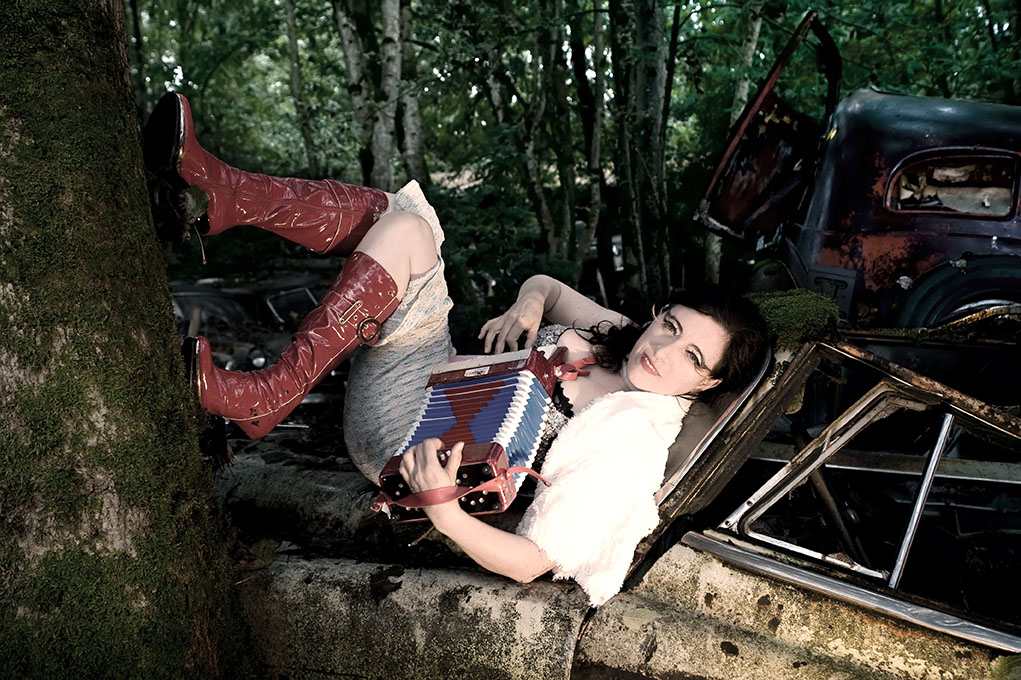
The yodel: is it a herders‘ call, a melancholy mountain lament or a high art form? Depends on who you ask, what continent you’re on and what century you lived in, say yodellers and enthusiasts on both sides of the Atlantic.
As young men growing up in the Swiss settlement of New Glarus, Wisconsin, Tim Nybroten and Ed Brand went to high school and drove their cars through the Midwestern corn fields listening to rock and roll from the likes of AC/DC and Boston…as well as yodelling from the New Glarus Jodlerklub (yodelling club) and other Swiss groups.
Today, Nybroten and Brand themselves sing in the New Glarus Jodlerklub, even though only Brand has Swiss roots – Nybroten’s ancestors are Norwegian. They sing very traditional Swiss yodels, learning the foreign Swiss-German words phonetically from Swiss expat native speakers who also sing in the group.

More
The New Glarus Jodlerklub
Bart Plantenga is a radio DJ-turned-yodel researcher who has written two books on the subject: Yodel In HiFi: From Kitsch Folk to Contemporary ElectronicaExternal link and Yodel-Ay-Ee-Oooo: The Secret History of Yodeling Around the WorldExternal link. He says the migration of Swiss yodel traditions to North America followed groups of Mennonite and Swiss settlers who mostly ended up in parts of Pennsylvania, Wisconsin, Indiana and West Virginia.
But those weren’t the only roots of yodelling in North America. Meanwhile, completely separate yodelling traditions were cropping up around cowboy campfires in the western United States and even Mexico. Plantenga says there’s some controversy among music researchers about whether their vocalisations can be called yodelling – but he believes they’re just “rougher” versions of what the Swiss were doing.
“The original yodel is just a call,” he says. “Cowboys probably influenced each other at campfires, taught each other how to play guitar, how to yodel and sing.”
“In America there’s [still] something called hollerin’, the rougher cousin of yodelling. It’s a little less melodic but it still has the same pitch change as yodelling so it just sounds rougher or less musical.”
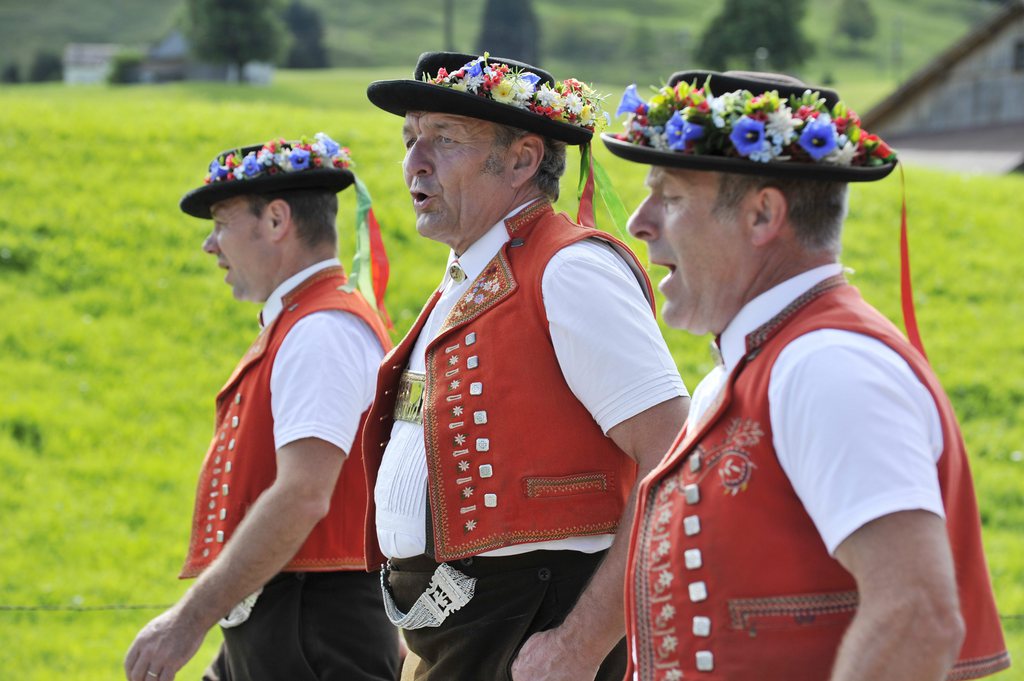
More
Can yodel, will travel
Classical ‘sampling’
So how did yodelling turn from a herders’ call into a melody and standardised tunes that influenced popular music? Plantenga says it all started when classical music composers – the popular music of the day – explored European folk traditions to get “samples” for their compositions.
“Switzerland was one of the first countries with organised tourism, so poets, musicians and composers made regular treks to Switzerland to be influenced by the nature, mountains and views but also to experience the amazing yodellers they encountered,” Plantenga says.
Then, with the dawn of the recording era in the 1920s, many touring yodel groups of Swiss immigrants in the United States began making and selling recordings on the mass market and developed a popular following. Among the most successful artists was Fritz ZimmermannExternal link, who evoked images of the Swiss homeland in his songs – even though he “was based at 239 West Seventy-Sixth Street in New York City”, as folk music researcher Christoph Wagner writes in a paper on the subject.External link
The avant garde
About 40 years later, a young Shelley Hirsch came across such traditional yodel recordings and tried to imitate them in the courtyard of her Brooklyn apartment building. According to Plantenga, those “beautiful, weird, enchanting exotic vocals” inspired the young Jewish woman who grew up poor in New York to pursue a career in performing.
Hirsch – along with Swiss artists Erika Stucky and Christine Lauterburg, among many others – became part of an “avant-garde” movement of vocalists heavily influenced by the experimental nature of yodelling.
“Since avant-garde vocalists are very much interested in discovering any new sounds from pops to hisses to human beat box, they do look to extreme vocals like yodels,” says Plantenga.
Stucky, who grew up in San Francisco but moved back to her native Switzerland at the age of nine, straddles the American cowboy yodelling traditions and the Swiss Alpine ones. But it wasn’t easy for her to establish her American-Swiss onstage persona. And Stucky says it’s sometimes hard for audiences on both sides of the Atlantic to know what to make of her flamboyant, bi-continental act.
“Americans tend to laugh because it’s fun,” she says. “The Swiss think voodoo… she’s calling the spirits up in the Alps. Because a European audience might think more in terms of tradition and wonder, where is she getting that from? And an American would more tend to be amused or entertained.”
Three schools of thought
Despite being bestowed in March with the Swiss government’s first-ever award for innovative musicians, Stucky can’t recall ever being invited to perform at the Federal Yodelling Festival, a triennial event that’s the largest for the traditional Swiss yodelling community.
“At a traditional yodel fest, I would probably be best received if I went as a foreigner,” Stucky says. “They would know, ah, this is the kid from America with the flower power injection, let’s listen to her. It’s much easier than coming from [my native] Valais, where they would find what I’m doing a bit strange.”
Stucky’s observation aligns with the three main types of yodelling that Plantenga sees developing: the traditionalists, like the Federal Yodelling Association, which sponsors the festival; the more modern, hard-to-categorise yodellers like Stucky; and “nature yodellers,” who may not have perfect pitch but sing with a sort of guttural, organic inspiration, not unlike the American cowboys.
The Swiss yodeller who best embodies that “nature yodelling” tradition for Plantenga is Bernhard Betschart, who once told him “how his father is always sort of denigrated by his peers who were in these yodel clubs where they were developing this kind of pristine, pure sound, and here he was, this rough guy with this very soulful expression”.
“[The Federal Yodelling AssociationExternal link] has strict guidelines of when a yodel can appear in a song. And this was all done to save the Swiss yodel from extinction in the early 1900s,” Plantenga adds. “They decided what a real yodel was, so there’s a really restrictive framework around the Federal Yodelling Association, which the two other strains of yodelling are totally against.”
He adds that some more traditional yodellers were “upset” when another avant-garde yodeller, Christine Lauterburg, was recently honoured with her image on a Swiss postage stamp as the new face of Swiss yodelling.
Lauterburg also plays the violin, with crossover stylings inspired in part by American fiddling traditions, as the first part of this video shows.
But little by little “things are changing”, Plantenga feels, with mutual acceptance of modern and traditional forms of yodelling taking hold. The Federal Yodelling Festival has long invited foreign groups – including the New Glarus Jodlerklub – to take part, and this year groups came from as far away as South America and Asia.
And Stucky is constantly looking to old, standard yodels for inspiration.
“Just two weeks ago I was at a [traditional festival] and there I stood in the midst of traditional yodellers and performed an ‘Alpsäge’, or an Alp blessing,” she says.

In compliance with the JTI standards
More: SWI swissinfo.ch certified by the Journalism Trust Initiative

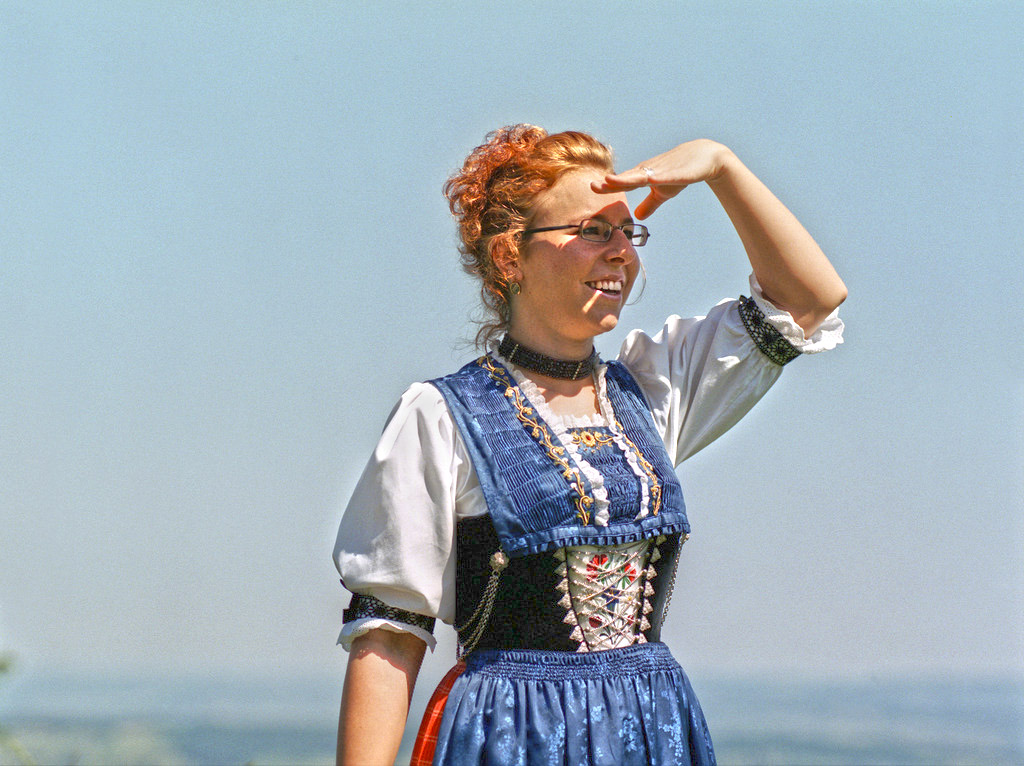
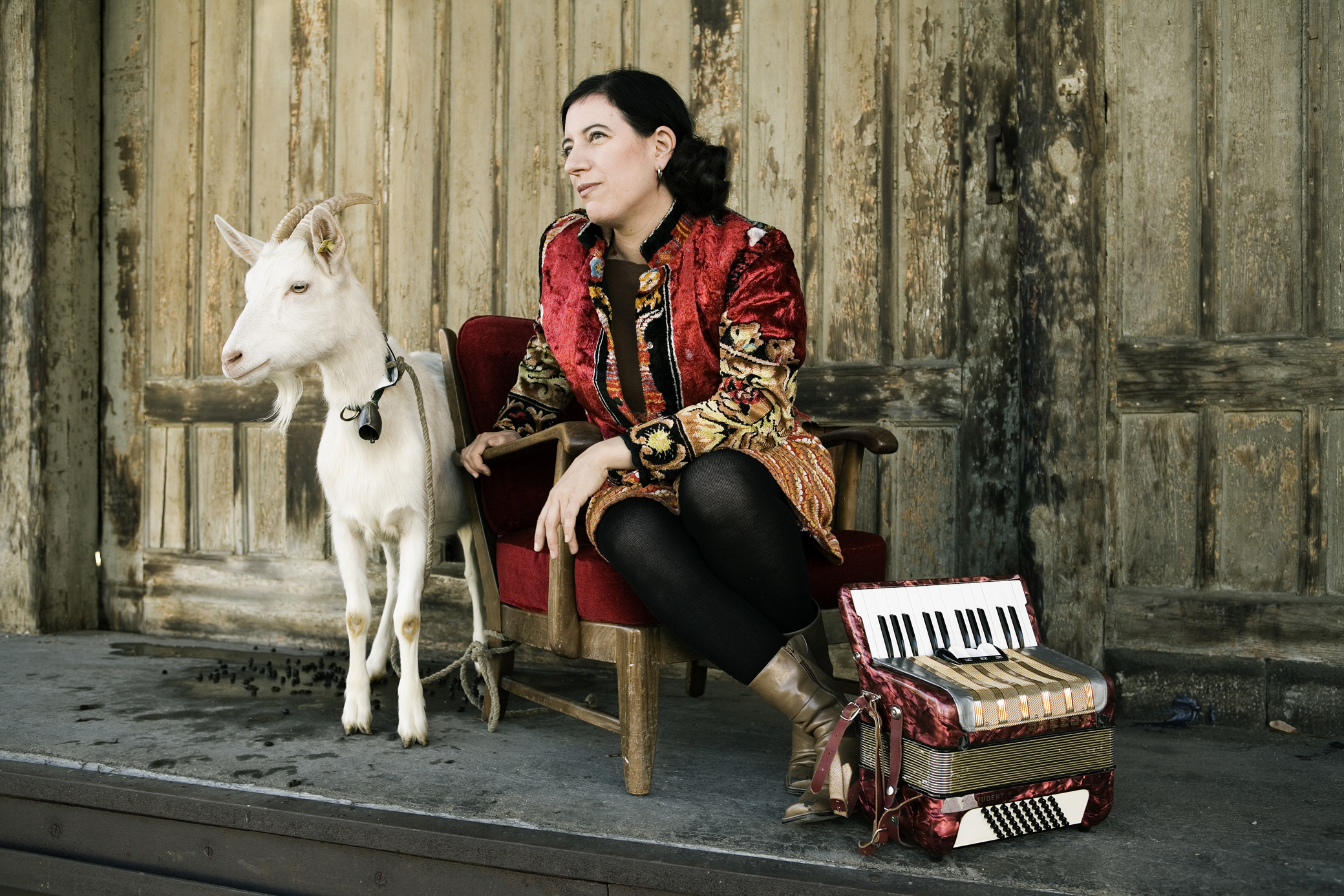
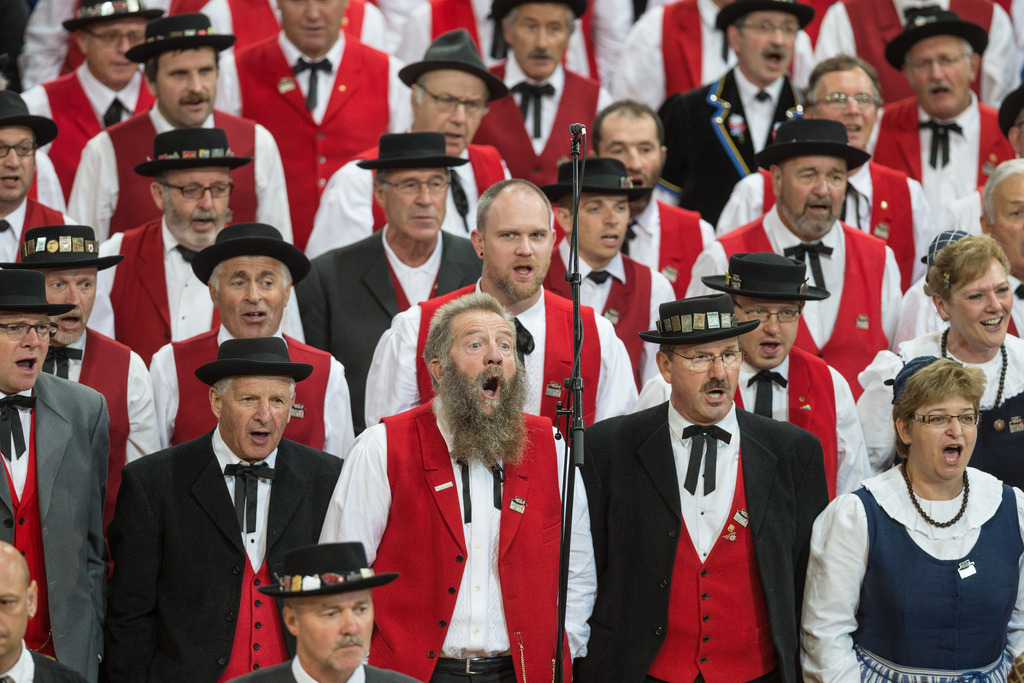
You can find an overview of ongoing debates with our journalists here. Please join us!
If you want to start a conversation about a topic raised in this article or want to report factual errors, email us at english@swissinfo.ch.